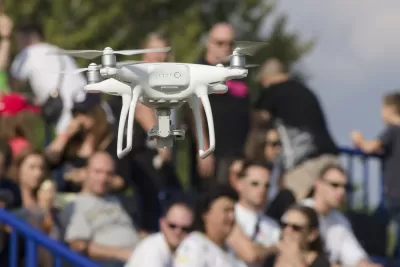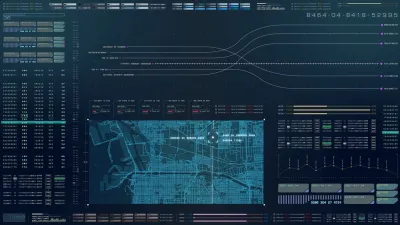Too often, smart city technology is described as an innocuous tool, but Adam Greenfield argues the technology acquiring this data will be used to distribute city resources, an inherently political act.

As smart cities collect more of our information and give cities more data, it's imperative that we understand that the automation of data collection does not make the information perfect or unbiased. In Radical Technologies: The Design of Everyday Life (which has been excerpted and adapted for the Guardian) Adam Greenfield argues that proponents of connected cities exaggerate the benefits of data. "Strongly implicit, is the presumption that whatever policies are arrived at in this way will be applied transparently, dispassionately and in a manner free from politics." No perfect responses to all civic problems exist, and pretending that algorithms can deliver such results endangers cities. "We need to understand that creating an algorithm intended to guide the distribution of civic resources is itself a political act," Greenfield argues.
Greenfield's arguments cover more than cities and deserve to be read in their entirety. While he's not trying to pretend the world can disconnect or should, his investigation centers around cautions like this one. "Advocates of smart cities often seem to proceed as if it is self-evident that each of our acts has a single, salient meaning, which can be recognised, made sense of and acted upon remotely by an automated system, without any possibility of error," a dangerous oversimplification.
FULL STORY: Rise of the machines: who is the ‘internet of things’ good for?

Planetizen Federal Action Tracker
A weekly monitor of how Trump’s orders and actions are impacting planners and planning in America.

The Simple Legislative Tool Transforming Vacant Downtowns
In California, Michigan and Georgia, an easy win is bringing dollars — and delight — back to city centers.

San Francisco's School District Spent $105M To Build Affordable Housing for Teachers — And That's Just the Beginning
SFUSD joins a growing list of school districts using their land holdings to address housing affordability challenges faced by their own employees.

In More Metros Than You’d Think, Suburbs are Now More Expensive Than the City
If you're moving to the burbs to save on square footage, data shows you should think again.

The States Losing Rural Delivery Rooms at an Alarming Pace
In some states, as few as 9% of rural hospitals still deliver babies. As a result, rising pre-term births, no adequate pre-term care and "harrowing" close calls are a growing reality.

The Small South Asian Republic Going all in on EVs
Thanks to one simple policy change less than five years ago, 65% of new cars in this Himalayan country are now electric.
Urban Design for Planners 1: Software Tools
This six-course series explores essential urban design concepts using open source software and equips planners with the tools they need to participate fully in the urban design process.
Planning for Universal Design
Learn the tools for implementing Universal Design in planning regulations.
Smith Gee Studio
City of Charlotte
City of Camden Redevelopment Agency
City of Astoria
Transportation Research & Education Center (TREC) at Portland State University
US High Speed Rail Association
City of Camden Redevelopment Agency
Municipality of Princeton (NJ)





























